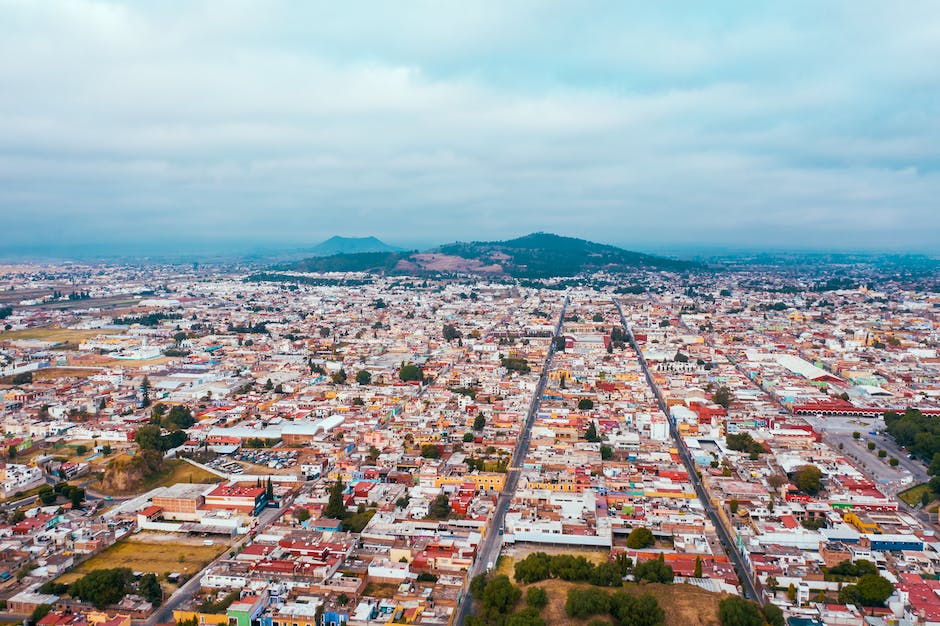Table of Contents
“Arab Leaders in Urban Planning: Shaping Tomorrow’s Cities”
Introduction
“Arab Leaders in Urban Planning: Building the Future” explores the significant role played by Arab leaders in shaping urban landscapes and driving sustainable development in the region. This introduction provides an overview of the book, highlighting its focus on the visionary approaches, innovative strategies, and transformative projects implemented by Arab leaders to create vibrant, inclusive, and resilient cities. By showcasing their achievements, the book aims to inspire and inform urban planners, policymakers, and researchers worldwide, emphasizing the importance of effective urban planning in building a prosperous future for Arab cities and their inhabitants.
The Role of Arab Leaders in Shaping Urban Planning

The Role of Arab Leaders in Shaping Urban Planning
Urban planning plays a crucial role in shaping the future of cities, and Arab leaders have been at the forefront of this endeavor. With rapid urbanization and population growth, Arab countries have faced unique challenges in creating sustainable and livable cities. Arab leaders have recognized the importance of urban planning in addressing these challenges and have taken proactive measures to shape the future of their cities.
One of the key roles of Arab leaders in urban planning is to create a vision for their cities. They understand that a well-defined vision is essential for guiding the development of cities and ensuring that they meet the needs of their residents. Arab leaders have been actively involved in setting goals and objectives for their cities, taking into consideration factors such as economic growth, social equity, and environmental sustainability.
In addition to creating a vision, Arab leaders have also been instrumental in developing comprehensive urban plans. These plans outline the strategies and actions needed to achieve the vision for the city. Arab leaders have recognized the importance of long-term planning and have invested significant resources in developing master plans that guide the development of their cities over several decades. These plans take into account factors such as land use, transportation, infrastructure, and environmental protection.
Furthermore, Arab leaders have played a crucial role in promoting sustainable urban development. They understand that cities need to be environmentally friendly and resilient to the challenges of climate change. Arab leaders have implemented policies and initiatives to promote sustainable practices in urban planning, such as promoting green building design, investing in renewable energy, and improving public transportation systems. By prioritizing sustainability, Arab leaders are ensuring that their cities are not only livable but also environmentally responsible.
Another important aspect of the role of Arab leaders in urban planning is the promotion of social equity. They recognize that cities should be inclusive and provide equal opportunities for all residents. Arab leaders have implemented policies to address social inequalities, such as providing affordable housing, improving access to education and healthcare, and creating public spaces that foster social interaction. By prioritizing social equity, Arab leaders are creating cities that are not only economically prosperous but also socially cohesive.
Furthermore, Arab leaders have been actively involved in engaging with stakeholders in the urban planning process. They understand that successful urban planning requires the participation of various stakeholders, including residents, businesses, and civil society organizations. Arab leaders have established mechanisms for public participation, such as public consultations and community engagement programs. By involving stakeholders in the decision-making process, Arab leaders are ensuring that the needs and aspirations of the community are taken into account in urban planning.
In conclusion, Arab leaders have played a crucial role in shaping urban planning in their countries. They have created a vision for their cities, developed comprehensive urban plans, promoted sustainable development, prioritized social equity, and engaged with stakeholders. By taking proactive measures, Arab leaders are building the future of their cities, creating sustainable and livable urban environments for their residents. As urbanization continues to accelerate, the role of Arab leaders in urban planning will become even more critical in ensuring the prosperity and well-being of their cities.
Innovative Approaches to Urban Planning by Arab Leaders
Arab Leaders in Urban Planning: Building the Future
In recent years, Arab leaders have been at the forefront of innovative approaches to urban planning. With rapid urbanization and population growth, cities in the Arab world are facing numerous challenges, including housing shortages, traffic congestion, and environmental degradation. However, Arab leaders have shown great determination and creativity in addressing these issues, and their efforts are transforming cities into sustainable and livable spaces.
One of the key areas where Arab leaders have made significant strides is in the development of smart cities. These cities leverage technology and data to improve the quality of life for residents. For example, Dubai, one of the leading cities in this regard, has implemented a comprehensive smart city strategy that includes initiatives such as smart transportation systems, smart energy grids, and smart waste management. These innovations not only enhance efficiency but also reduce the environmental impact of urbanization.
Another area where Arab leaders have excelled is in the promotion of sustainable architecture and design. Recognizing the importance of environmentally friendly buildings, many Arab cities have adopted green building codes and standards. For instance, Qatar has implemented the Qatar Sustainability Assessment System (QSAS), which sets guidelines for sustainable design and construction. By incorporating features such as energy-efficient materials, renewable energy sources, and water conservation systems, Arab leaders are creating buildings that are not only aesthetically pleasing but also environmentally responsible.
Furthermore, Arab leaders have been proactive in addressing the issue of affordable housing. With rising urban populations, the demand for housing has skyrocketed, leading to skyrocketing prices and housing shortages. To tackle this challenge, Arab leaders have implemented various strategies, such as public-private partnerships and social housing programs. For example, Saudi Arabia’s Vision 2030 includes a goal to increase the percentage of homeownership from 47% to 70% by 2030. By providing affordable housing options, Arab leaders are ensuring that all citizens have access to decent and affordable housing.
In addition to these initiatives, Arab leaders have also prioritized the development of public spaces and recreational areas. Recognizing the importance of creating vibrant and inclusive communities, many Arab cities have invested in the creation of parks, plazas, and waterfronts. These spaces not only provide opportunities for leisure and recreation but also foster social interaction and community engagement. For instance, Abu Dhabi’s Corniche Beach is a prime example of a well-designed public space that attracts residents and tourists alike.
Moreover, Arab leaders have embraced the concept of mixed-use development, which combines residential, commercial, and recreational spaces in one area. This approach not only maximizes land use but also promotes walkability and reduces reliance on private vehicles. By creating vibrant and diverse neighborhoods, Arab leaders are fostering a sense of community and enhancing the overall quality of life for residents.
In conclusion, Arab leaders have demonstrated their commitment to building sustainable and livable cities through innovative approaches to urban planning. From the development of smart cities to the promotion of sustainable architecture and design, Arab leaders are transforming cities into spaces that prioritize the well-being of their residents. By addressing challenges such as affordable housing and the development of public spaces, Arab leaders are creating inclusive and vibrant communities. As the Arab world continues to urbanize, these innovative approaches will play a crucial role in shaping the future of cities in the region.
Sustainable Development Initiatives Led by Arab Leaders in Urban Planning
Sustainable Development Initiatives Led by Arab Leaders in Urban Planning
Urban planning plays a crucial role in shaping the future of cities and ensuring their sustainability. Arab leaders have recognized the importance of sustainable development and have taken significant initiatives in urban planning to build a better future for their cities and communities. These initiatives encompass various aspects, including transportation, energy, waste management, and green spaces.
One of the key areas where Arab leaders have focused their efforts is transportation. They have implemented comprehensive plans to improve public transportation systems, reduce traffic congestion, and promote sustainable modes of transportation such as cycling and walking. For example, in Dubai, the government has invested heavily in the construction of a modern metro system that connects different parts of the city, reducing the reliance on private cars and decreasing carbon emissions.
Energy efficiency is another crucial aspect of sustainable urban planning. Arab leaders have recognized the importance of reducing energy consumption and promoting renewable energy sources. In Abu Dhabi, the government has launched the Masdar City project, which aims to be a carbon-neutral and zero-waste city. The project incorporates various sustainable features, including solar panels, wind turbines, and energy-efficient buildings, to minimize the city’s carbon footprint.
Waste management is also a significant concern for Arab leaders in urban planning. They have implemented innovative strategies to reduce waste generation and promote recycling. For instance, in Doha, Qatar, the government has introduced a waste-to-energy plant that converts waste into electricity, reducing the reliance on fossil fuels and minimizing landfill space. Additionally, they have implemented recycling programs and raised awareness among citizens about the importance of waste reduction and proper disposal.
Creating green spaces is another priority for Arab leaders in urban planning. They understand the importance of providing residents with access to nature and recreational areas. Many cities in the Arab world have invested in the development of parks, gardens, and green corridors. For example, Riyadh, the capital of Saudi Arabia, has transformed its urban landscape by creating large green spaces, including the King Abdullah Park, which offers a range of recreational activities for residents.
Furthermore, Arab leaders have recognized the importance of community engagement in sustainable urban planning. They have involved citizens in decision-making processes and encouraged their participation in shaping the future of their cities. This approach ensures that the needs and aspirations of the community are taken into account, leading to more inclusive and sustainable urban development.
In conclusion, Arab leaders have taken significant initiatives in sustainable urban planning to build a better future for their cities and communities. Their efforts encompass various aspects, including transportation, energy, waste management, and green spaces. By investing in public transportation, promoting renewable energy sources, implementing innovative waste management strategies, creating green spaces, and engaging the community, Arab leaders are paving the way for sustainable and livable cities. These initiatives serve as a model for other regions and demonstrate the commitment of Arab leaders to building a sustainable future.
Challenges and Successes of Arab Leaders in Building the Future through Urban Planning
Challenges and Successes of Arab Leaders in Building the Future through Urban Planning
Urban planning plays a crucial role in shaping the future of cities, and Arab leaders have been at the forefront of this endeavor. They have faced numerous challenges, but their successes in building the future through urban planning are commendable.
One of the major challenges faced by Arab leaders in urban planning is rapid urbanization. The Arab region has experienced significant population growth, leading to increased pressure on infrastructure and services. This has necessitated the need for efficient urban planning to accommodate the growing population. Arab leaders have responded to this challenge by implementing comprehensive urban development plans that focus on creating sustainable and livable cities.
Another challenge faced by Arab leaders is the preservation of cultural heritage. The Arab region is rich in history and cultural heritage, and it is essential to strike a balance between modernization and preservation. Arab leaders have recognized the importance of preserving their cultural identity and have incorporated elements of traditional architecture and design in their urban planning efforts. This has not only helped in preserving the cultural heritage but has also enhanced the aesthetic appeal of the cities.
Furthermore, Arab leaders have faced the challenge of ensuring inclusivity and social equity in urban planning. It is crucial to create cities that cater to the needs of all segments of society, including the marginalized and vulnerable populations. Arab leaders have made significant strides in this regard by implementing policies that promote affordable housing, accessible public spaces, and improved infrastructure in underserved areas. This has helped in reducing social disparities and creating more inclusive cities.
Despite these challenges, Arab leaders have achieved remarkable successes in building the future through urban planning. One notable success is the development of sustainable cities. Arab leaders have recognized the importance of environmental sustainability and have incorporated green building practices, renewable energy sources, and efficient transportation systems in their urban planning strategies. This has not only reduced the carbon footprint but has also improved the quality of life for residents.
Another success is the creation of vibrant and dynamic urban spaces. Arab leaders have focused on creating cities that are not only functional but also aesthetically pleasing. They have invested in the development of public parks, cultural centers, and recreational facilities, which have transformed the urban landscape and enhanced the overall quality of life. These vibrant urban spaces have become social hubs, fostering a sense of community and belonging among residents.
Furthermore, Arab leaders have successfully leveraged technology in urban planning. They have embraced smart city initiatives, incorporating digital technologies to improve the efficiency of urban services and enhance the overall urban experience. This has resulted in improved transportation systems, efficient waste management, and enhanced public safety. Arab cities have become pioneers in utilizing technology to create smarter and more sustainable urban environments.
In conclusion, Arab leaders have faced numerous challenges in building the future through urban planning, including rapid urbanization, preservation of cultural heritage, and ensuring inclusivity. However, their successes in creating sustainable cities, vibrant urban spaces, and leveraging technology are commendable. Arab leaders have demonstrated their commitment to building a better future for their cities and have set an example for other regions to follow. With their continued efforts, Arab cities are poised to become global leaders in urban planning and development.
Q&A
1. What is “Arab Leaders in Urban Planning: Building the Future”?
“Arab Leaders in Urban Planning: Building the Future” is a program or initiative focused on developing and promoting urban planning expertise among Arab leaders.
2. Who organizes “Arab Leaders in Urban Planning: Building the Future”?
The organizers of “Arab Leaders in Urban Planning: Building the Future” are not specified in the question.
3. What is the goal of “Arab Leaders in Urban Planning: Building the Future”?
The goal of “Arab Leaders in Urban Planning: Building the Future” is to enhance urban planning capabilities among Arab leaders and contribute to the development of sustainable and efficient cities in the Arab world.
4. How does “Arab Leaders in Urban Planning: Building the Future” contribute to the future?
“Arab Leaders in Urban Planning: Building the Future” contributes to the future by equipping Arab leaders with the necessary knowledge and skills to effectively plan and develop cities, leading to improved urban environments and quality of life for residents.
Conclusion
In conclusion, Arab leaders in urban planning play a crucial role in shaping the future of their cities. Through their vision, expertise, and strategic decision-making, they are able to create sustainable, inclusive, and innovative urban environments. By focusing on key areas such as infrastructure development, transportation systems, housing, and public spaces, these leaders are able to address the challenges of rapid urbanization and ensure the well-being and prosperity of their citizens. With their commitment to building the future, Arab leaders in urban planning are paving the way for sustainable and thriving cities in the region.




